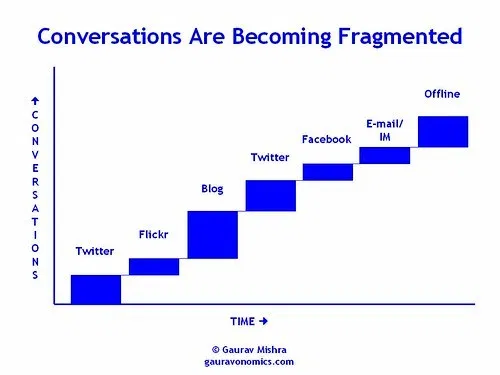If you have a teen these days, you have a teen with social network accounts. And, if you have a teen with social network accounts, you have a teen who needs to understand the gravity of the decisions they make where their online personas are concerned.
The Slogan what happens in Vegas stays in Vegas is an effective ad campaign promoting the idea that in Vegas you can have anonymity. What happens online stays online, however, has the opposite meaning. When something is posted online, it can be picked up by anybody anywhere and can come back to haunt the person who posted it for years to come.
and… So, goes the communication with others especially our Teens!
Read these 10 tips to keep your child safe on social networks and make sure that your teen doesn’t end up doing something they consider private but that may end up being something they will regret for years.
Contents
- 1. Social Network Profiles Are Public, You Have The Right to View Your Child’s
- 2. Help Them Understand the Ramifications of Damage to Their Public Reputation
- 3. View Social Network Profiles Together and Discuss Them
- 4. Sign up for Social Sites Yourself
- 5. Remain the Parent, Don’t Try to Fit Into the Group
- 6. Don’t Keep Your Findings Secret, Talk, Talk, Talk
- 7. Don’t be Too Intrusive, Let Them Have Some Fun and Room to be a Kid
- 8. Make sure Your Children Know How to Spot Trouble and to Bring it to Your Attention
- 9. Do Cause Your Child To Miss the Good Because of Fear of the Bad
- 10. Mostly Just Stay involved and Available
Don’t convince yourself that viewing your child’s social network profiles is like sneaking into their room and reading their diary. If the diary was posted on a public server and available to anyone interested then there might be a similarity. As it is profiles are public and if your teen doesn’t want you viewing it, they shouldn’t be posting it.
2. Help Them Understand the Ramifications of Damage to Their Public Reputation
These days it is often the case when a person applies for a job or submits an application for any number of reasons such as school admissions, loans, rental or purchasing applications, etc. the person reviewing their application will do an internet search on them. What may seem like something that is harmless to post publicly to your teen can come back to haunt them much, much later. explain this to them and help them understand that many public actions have long term consequences.
Sit with your teen at the computer and ask them to walk you through their public profiles. A warning though don’t be too overprotective. Pick your battles and try to consider whether the photo, bio, or comment you don’t like is really something that could do them harm or whether you just object for your own personal reasons.
Not only do many social sites require you to be a member to view other’s profiles, but if you sign up for sites yourself you can involve your child in constructing your profile and bio with you and take the opportunity to teach them the difference between what should be public and what should be private. You can also add your teen to your friend’s list and by doing so have an opportunity to keep up with their network activities a little easier.
5. Remain the Parent, Don’t Try to Fit Into the Group
Make sure that any online involvement you have with your teen and their online peers is done as a parent interacting with kids. Don’t try to show them how cool you are by adopting the latest internet lingo when interacting. In order to get the respect and hold the authority you need to effectively confront issues, you should remember to keep the parent hat on.
6. Don’t Keep Your Findings Secret, Talk, Talk, Talk
If you see something your teen has posted that you do not think they should be posting, bring it to their attention. Don’t go the espionage route and try and monitor them secretly. Your not trying to catch them doing something wrong, you trying to teach them how to use social networks responsibly. You can’t teach if you don’t talk.
7. Don’t be Too Intrusive, Let Them Have Some Fun and Room to be a Kid
It can seem like walking a fine line but understand that kids will be kids. You need to keep our child’s trust if you want the lines of communication to stay open. Things like monitoring software’s that track every single second of our child’s online activity are a step best reserved for when serious violations of rules have occurred. As long as you keep communication open, teach them when you can, and unobtrusively inspect activities periodically you should not need to take more drastic measures.
8. Make sure Your Children Know How to Spot Trouble and to Bring it to Your Attention
Make sure you children not only know what is appropriate behavior and interaction from themselves online but make sure they also know what standards of conduct they should hold others to. Make sure they do not accept bullying or inappropriate suggestions from their online associates. Also, make sure that they understand the importance of bringing this kind of interaction to your attention immediately.
9. Do Cause Your Child To Miss the Good Because of Fear of the Bad
Though you may think it sounds like a good idea to simply restrict your child from social sites altogether and thereby eliminate any possibility of dangerous situations realize that there many good things about social sites as well. Not only do social sites help to expose your teen to many people, cultures, and ideas that will help to give them a more well-rounded view of the world they also help teens to explore their own identities and find out how they actually feel and who they actually are.
10. Mostly Just Stay involved and Available
There is really no big secret way to make sure that everything will go perfectly no matter what the situation. With social sites just like with all parently duties, the main thing is just to make sure your child knows you are there for them and to make sure they feel comfortable keeping you informed. Parenting is sometimes tough but it is always easier when all parties are willing to communicate.



